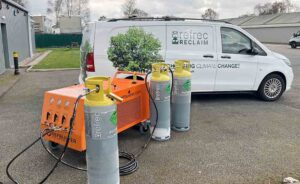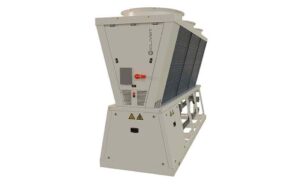Project seeks cold chain for COVID-19 vaccine delivery
13th May 2020
INDIA/UK: Scientists in the UK and India are behind a project to develop a continuous cold chain capable of eventually delivering COVID-19 vaccine to billions of people around the globe.
The Global Alliance for Vaccines and Immunisation estimates that only 10% of health care facilities in the world’s poorest countries have a reliable electricity supply while in some countries less than 5% of health centres have vaccine-qualified refrigerators.
Backed by India’s Shakti Sustainable Energy Foundation, experts from the UK’s University of Birmingham and Heriot-Watt University, Edinburgh, are joining forces with non-profit, commercial and academic partners to begin investigating the scale of challenge involved in distributing a potentially temperature-sensitive COVID-19 vaccine.
“Universal vaccine access is already a major challenge. With COVID-19, rapid mass immunisation will probably be required; maintaining a continuous cold chain to rapidly transport and deliver COVID-19 vaccines to all communities, many where electricity supply and cooling infrastructure is often non-existent or unreliable, will be a daunting task,” said University of Birmingham professor of cold economy Toby Peters.”
Shubhashis Dey, associate director of Shakti Sustainable Energy Foundation, commented: “COVID-19 related mass immunisation requirements offer us an opportunity to not only increase our vaccine production, but also create a robust logistics cold chain system that can handle the country’s overall vaccine needs.
“The vaccination program will require millions of citizens of all age group to be vaccinated within a short span of time. Our effort is designed to help India overcome this massive logistic challenge sustainably and create a model of global adoption.”
Research in India is being led by Centre for Environment Education, and supported by commercial partners such as Italian refrigeration company Zanotti, UK company SureChill, which has a cooling technology that doesn’t need constant power, and US sensor technology company Nexleaf Analytics.
Professor Phil Greening, from the Centre for Sustainable Road Freight at Heriot-Watt University, commented: “We may have 12-18 months to engineer a robust, efficient distribution system to ensure any vaccine for COVID-19 can reach the world’s population, whether they are in urban or remote rural areas.
“A radical approach like community cooling hubs could help meet the different communities’ cooling needs in a clean, affordable and sustainable way while helping to safeguard people’s health. There will be many knowns and unknowns in facing the coronavirus challenge, but a vaccine is one of the very few exit strategies around which scientists and government are aligned.”







